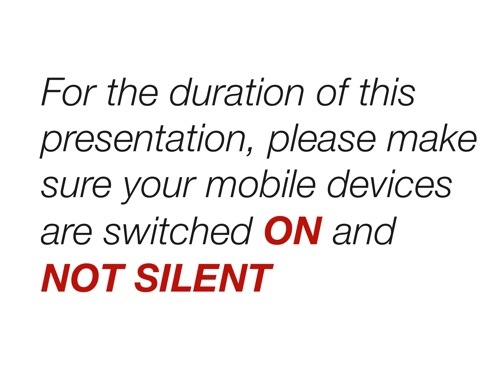Wikipedia entry on Marshall McLuhan
…content had little effect on society—in other words, it did not matter if television broadcasts children’s shows or violent programming, to illustrate one example—the effect of television on society would be identical.
The point I would take away from this is that ‘television’ has had a much greater impact on society than any content created upon it. Of course, as an enabling technology it can rely on the full gamut of visual programming over decades to enforce the effect.
As an Internet denizen for over 20 years now, I wonder how much we consider this when attempting to communicate with other sections of society.
PEDAGOGY
Education lags behind society because it must. The role of the teacher is to prepare the student for the world brut it is a very rare individual who can prepare another for a future that does not yet exist. We tie teachers up in a curriculum they must address, we check on their progress by subjecting students to exams which only serve to reinforce an ageing curriculum and we punish those who do not meet the arbitrary standards set by individuals who did not grow up in this world. Education prepares students to understand the past.
My son was diagnosed with ADHD and the response from the school was that his choices were medication or expulsion. His inability to focus on a task was disruptive to the class yet this same child can display razor-sharp focus to a task when it is presented in a different format.
The content (message) is much the same (the presentation of concepts, numbers, formulae) but the medium is entirely different. And the medium is more powerful and becomes an enabler, maybe even an amplifier) for the delivery of the message.
If our children are living in the most stimulating and distracting era in history, it is because they are being distracted by the medium, not the message.
PAPER
I love books. My library at home is brimming with them. And despite what many may think, I am yet to read a single book on an electronic device. But the Gutenberg press is nearly 600 years old and despite our advancements in technology, the printed book remains the standard in education media. I would imagine that the data created in audio, video and interactive forms far outweighs the data created in printed books – yet printed books are what we demand our children use.
Sir Ken Robinson:
Our children are living in the most intensely stimulating period in history, besieged by stimuli that distract them but we penalise them for being distracted – we want them to conform instead, to keep them bored, so we anesthetise them rather than release and harness their energy.
When a child has access to a device like an iPad which provides stimulation of multiple senses, of multiple regions of the brain, to entertain, to educate, to answer queries and foster curiosity, is it any wonder that teachers may have difficulties engaging with them using paper and a HB pencil? They’re used to exploring 3D interactive worlds, touching screens of light that make music, rearing dragons in fantasy lands and defeating goblin and skeleton hordes. Giving them a piece of blank paper and expecting them to tell a story is almost cruel.
It becomes equally nonsensical that our schools still use slips of printed paper to communicate with parents. And if you want further proof, why is it that so many ‘education’ technology tools model themselves after outdated technology (see ‘Blackboard’ – how many school children today have even seen a blackboard?).
POLITICS
I am faced with attempting to communicate the future to government. There is a cruel dichotomy in the way the digital industry works and the way government works. I was asked to describe the development of the marketplace up to the year 2030. Similarly, we have to respond to an industry that considers next year to be the far future.

Dealing with students who are forced to comply with paper is easy as they grasp new concepts easily and even as I stand in a class, charged with delivering a guest lecture on digital, trying to inspire a response from the sullen faces, I know they are texting and messaging and dreaming of being somewhere else. It’s why I often ask the students to turn their mobiles on and take them off silent.
But if education is lagging behind society, then politics remains in the Stone Age. This is an environment that lives on paper, whose establishment thrives on tradition, whose operations are restricted from embracing digital. How else can we explain the resistance of local government to open data? How else can we explain the continued investment in construction, agriculture and other dying industries (compared to under-investment in knowledge economy sectors). Dealing with government remains a paper-bound process and their selection of medium is their message.